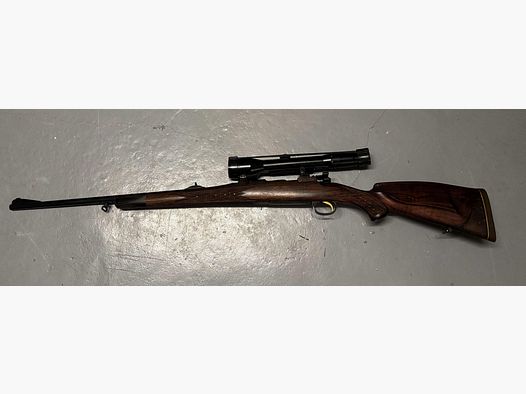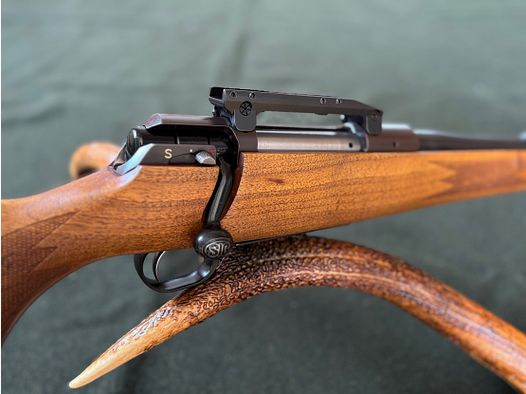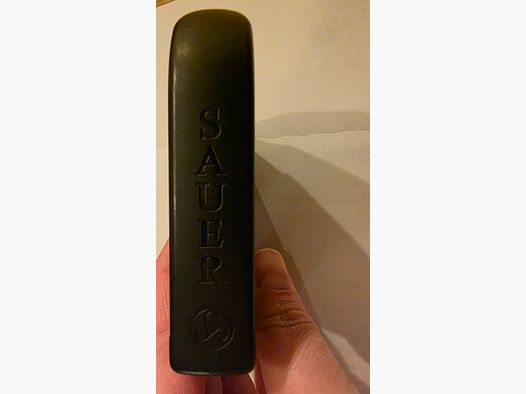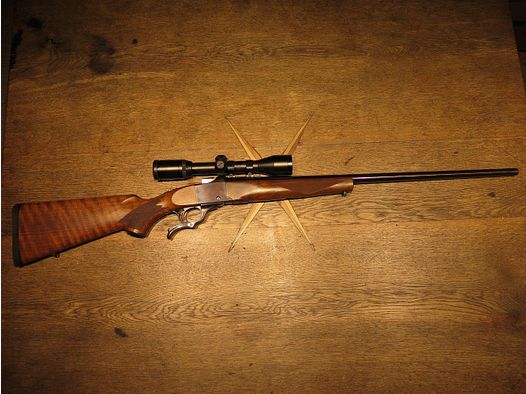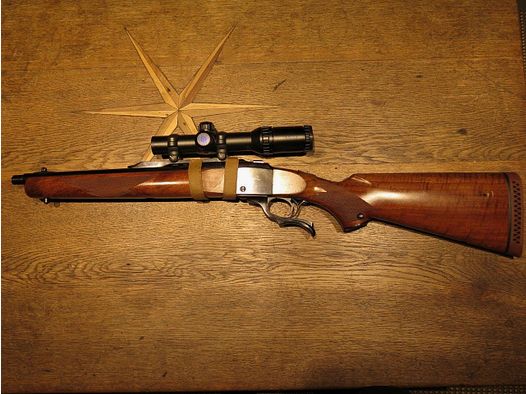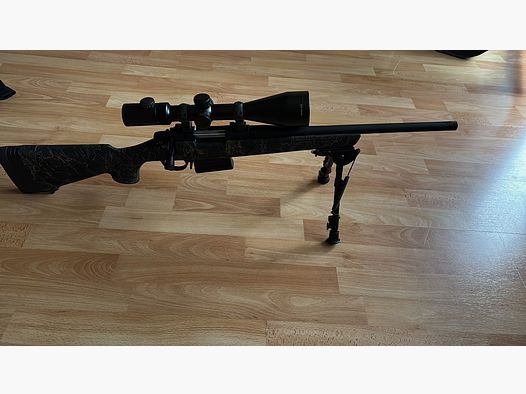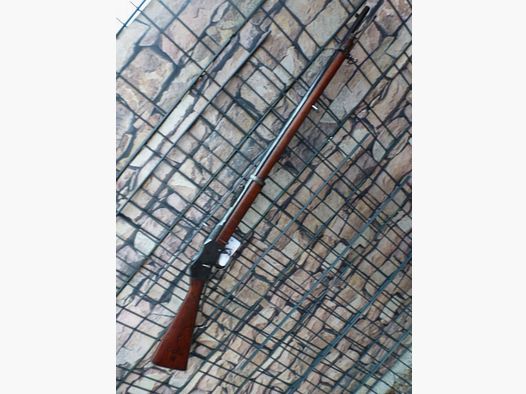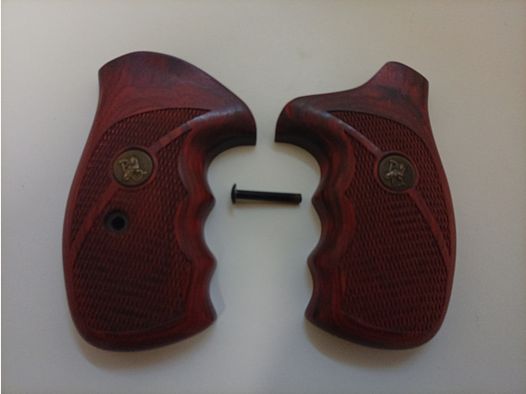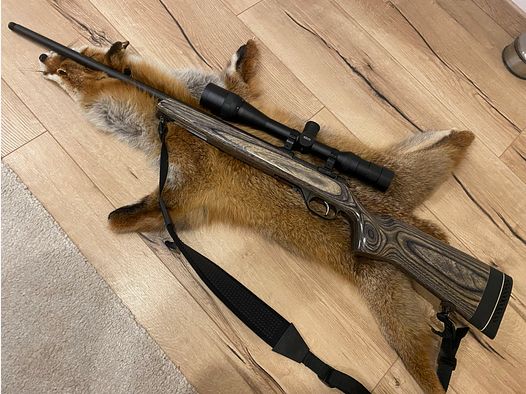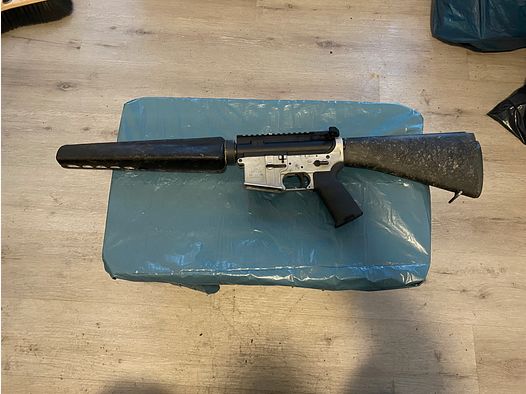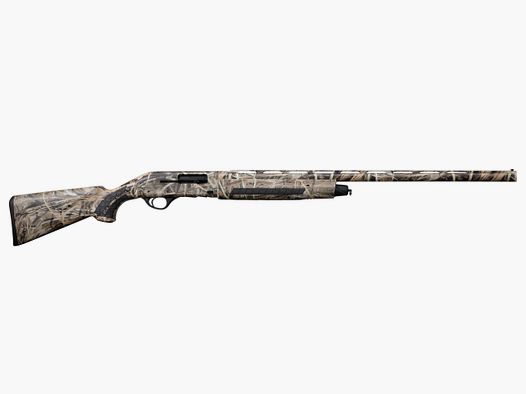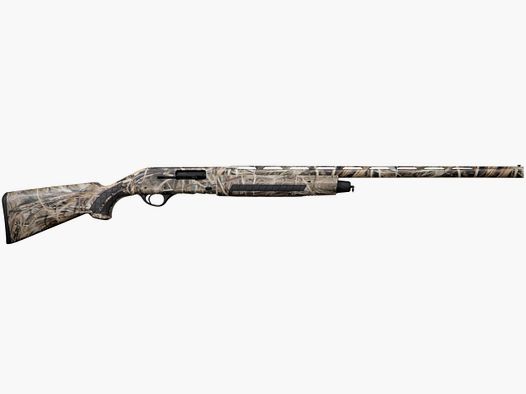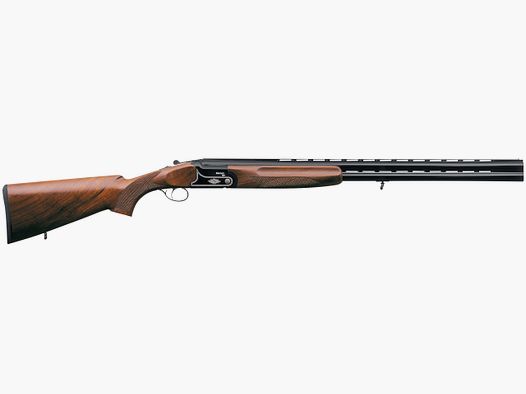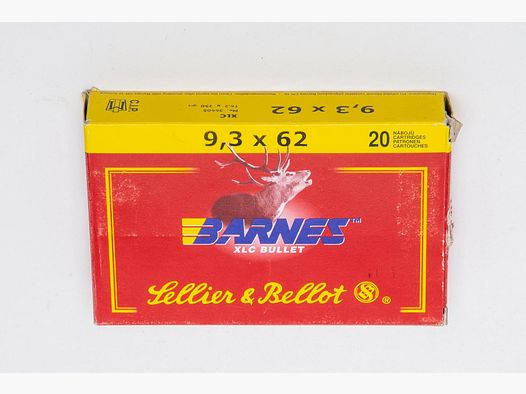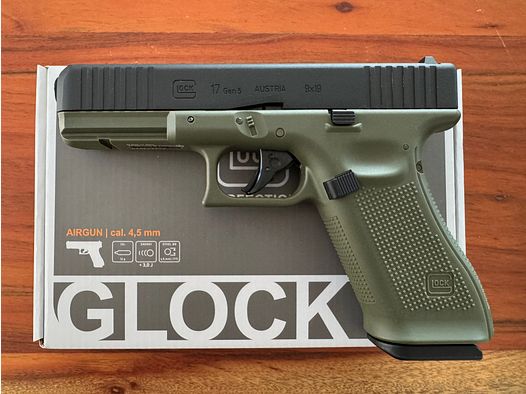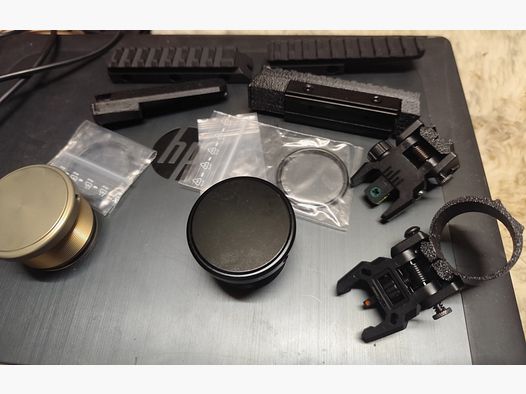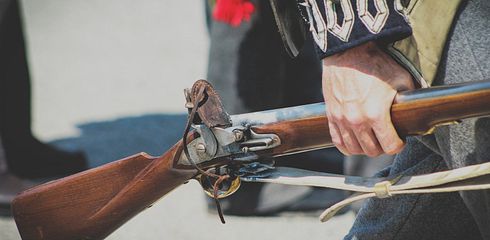The Gun Law Has Limits: International Legal Situation in the DACH Region
With laws, it is like everything else: When one runs out of Latin, one tries it with English. As a purely national matter, gun law in Europe is as diverse as the available weapon models; and it is also peppered with exceptions, contradictions, many "ifs" and even more "buts". This article aims to provide an overview of the legal situation in Germany, Austria, Liechtenstein, and Switzerland.
Exceptions Prove the Rule - No Law Without Exceptions
To begin with, it should be mentioned that every legal text also provides exceptions for certain individuals, institutions, weapons, or purposes. Due to the high rate of individualization and the different living conditions of gun owners, it is not possible to address every single exception here. Rather, we will deal with the fundamental legal provisions as they initially apply to every gun owner in the DACH region; regardless of their professional affiliation or any personal special status.
Firearms Requiring a Permit - Overview of Acquisition and Possession
Switzerland
Depending on the country, gun law is differently liberal. In the DACH region, it is Switzerland that can boast of being the country with the most generous gun laws in many cases. The mandatory military service for men allows for the assigned firearm (which is also approved for private ownership) to be stored at home after service. As a result, the Confederation is considered one of those countries with the most heavily armed civilian populations.
For private ownership of firearms requiring a permit as a citizen, a gun acquisition certificate is formally all that is needed. This can be applied for upon reaching adulthood, provided there are no violent crimes in the criminal record. A particularity in Switzerland is the regulation regarding airsoft, air pressure, and blank-firing devices as well as paintball markers. These are indeed subject to reporting in the Confederation, and thus handled much more strictly than in Austria or Germany; as can be read at the Federal Office of Police of the Swiss Confederation.
Airsoft weapons are legally considered a weapon only if they could be confused with real (live) weapons. If the energy of air pressure weapons is below 7.5 Joules, they are not considered a weapon from a legal standpoint. (Art 4 Abs 1 lit f and g WG)
Principality of Liechtenstein
In Liechtenstein, things are similar. Here too, a gun acquisition certificate is required for the purchase of firearms requiring a permit, available from the age of 18. However, a reason for acquisition only needs to be provided if the weapon to be acquired is not intended for shooting sports, hunting, or for a collection.
In Liechtenstein, there are not only firearms that require a permit or approval but also so-called privileged weapons. These are exempt from the gun law (WaffG) and only require a written purchase contract in case of confusion with real weapons to be legally acquired. This contract must be kept for at least ten years. Among these privileged weapons in Liechtenstein are airsoft and blank-firing weapons, paintball markers, replicas of single-shot muzzleloaders, air pressure, and CO2 weapons.
Austria
Austria enjoys one of the most liberal gun laws in all of Europe. Here, gun ownership is generally permitted for any EU or EEA citizen who is of legal age, has their residence in the federal territory, and has no court-imposed gun ban. Depending on the category of the weapon, there are different regulations regarding possession; for example, firearms of category C are freely available from the age of 18, but are subject to a three-day cooling-off period. Models of category B require explicit approval: the gun ownership card (WBK), which can be applied for from the age of 21 - accompanied by a psychological assessment - provided the aforementioned conditions are met. Weapons of category A are generally prohibited; however, for certain firearms in this category, an exception permit can be applied for on a case-by-case basis.
When applying for the gun ownership card - in Austria, there is only one version of it - a justification for gun ownership must be provided. The most common reasons given are sports shooting or self-defense; however, there is no special review to determine whether self-defense is justified as a reason for the applicant. When issuing a WBK for the first time, a maximum of two slots is standard. However, it is a widely held urban legend that one must provide two justifications when applying for two weapon slots.
Germany
Now let’s turn to Germany. To the dismay of the German gun owner, one is subject here to one of the strictest gun laws in Europe. While some firearms can also be freely acquired from the age of 18 in Germany, access to firearms requiring a permit (also belonging to category B here) is significantly more difficult compared to the neighboring country. In addition to the criteria already mentioned that must be met, Germany requires a specific need. This usually exists in the case of hunting, sports shooting, as a weapon collector, or as a person who is professionally confronted with weapons; such as security personnel and firearms experts. The argument of self-defense as a legal need for firearms is accompanied by the requirement that the applicant must be at far greater risk than the general public from attacks on their person or life.
Regardless of the type of legal need for firearms: It is affirmed if the weapon is suitable and necessary for the stated purpose. However, there is a inheritance privilege that Germany and Austria share in a similar manner: If someone inherits a firearm, they do not have to prove the need or, in Austria, provide a justification for more than two WBK slots, as the state cannot deny a citizen their inheritance. However, the citizen must ensure all legal steps that entitle them to possess the inherited weapon. For a pistol as an inheritance, this would be, for example, the application for a gun ownership card, of which there are different versions in Germany for collectors, sports shooters, hunters, and experts: red, yellow, and green.
So let’s summarize:
Austria classifies weapons into categories A (prohibited weapons and war material), B (requiring a permit), and C (registration required, but free). Without their own WBK, the buyer of a C firearm must wait three days before they can take the weapon from the store (cooling-off period). For B models, a WBK is required. It allows for the acquisition, possession, and import of B firearms. For A models, a gun ownership card is also required, but including an exception permit for category A. A WBK can be applied for in Austria from the age of 21.
Examples of firearm categories in AT:
- Category A: Pump-action shotguns, fully automatic firearms, semi-automatic long guns with centerfire ignition and a magazine capacity of more than 10 rounds, shotguns with an overall length of less than 90 cm ...
- Category B: Handguns, all repeating shotguns and semi-automatic firearms, unless they fall into category A
- Category C: Repeating rifles, single-shot, shotguns ...
Germany also classifies its weapons into these categories and has the additional category D (which has been dropped in Austria). However, the specific types of weapons that belong to these categories differ from their Austrian counterparts. While in Austria, semi-automatic long guns with a maximum magazine capacity of ten rounds (with centerfire ignition) belong to category B, in Germany, there is a capacity restriction of between three and a maximum of twelve rounds. Pump-action shotguns are allowed in Germany with a total length of at least 95 cm (with a minimum barrel length of 45 cm) and belong to category B.
Examples of firearms and their categorization in DE:
- Category A: Fully automatic firearms, short-barreled pump-action shotguns, imitation weapons ...
- Category B: Pump-action shotguns with corresponding minimum dimensions, semi-automatic shotguns and rifles, handguns
- Category C: Single-shot and repeating weapons
- Category D: Shotguns
In the Switzerland, firearms are classified as "subject to reporting", "requiring a permit", and "prohibited". A kubotan is not a firearm, but in Switzerland, it belongs to the category of prohibited weapons, while in Austria and Germany, it is freely available from the age of 18 - and in Germany, it is not even considered a weapon. Knuckle dusters and steel rods are prohibited in Switzerland, Austria, and Germany.
The different gun laws thus show some commonalities, which are only marked by minimal and easily overlooked differences. Therefore, special caution should be exercised when importing and exporting weapons of any kind: Before you import, export, or temporarily take a weapon, whether a firearm or not, be sure to research whether the respective weapon is allowed and approved for private ownership in the destination country. It is not uncommon for the relevant ministries to require special permits for import and export, for example, for taking a pump-action shotgun from Germany (category B, possession allowed with WBK) to Austria (category A, possession generally prohibited and only possible with explicit exception permit).
Gun Law Documents - A Brief Excursion
To help you better understand the following passages about taking weapons to another country, we will take a closer look at the gun law documents of a firearm owner.
Gun Ownership Card (WBK) and Gun Acquisition Certificate
The WBK generally entitles in Germany and Austria to acquisition and possession, in Austria also to import of firearms and ammunition requiring a permit; but not to export to another country.
In Austria, there is only one single WBK, which looks the same for everyone but can have different scopes of authorization (for example, a special permit for firearms of category A). In Germany, there are three different gun ownership cards; yellow, red, and green, which are intended for different groups of people.
The function of the WBK is taken over in Switzerland and Liechtenstein by the gun acquisition certificate.
Gun Pass, Gun Carry Permit, Small and Large Gun License
The gun pass entitles in Austria - in addition to acquisition, possession, and import - to carry a certain number of firearms; that is, to have them with you even in public. A gun license like in Germany existed in Austria a long time ago; this was replaced by the current gun pass. In Germany, on the other hand, there is a small and a large gun license. The small gun license entitles to carry signal, blank-firing, and irritant weapons. The large gun license allows the carrying of firearms according to German gun law, but requires passing a comprehensive examination. In Switzerland and Liechtenstein, carrying is covered by the gun carry permit. Throughout the DACH region, it applies: To obtain a gun carry permit, you must demonstrate a need for it.
But beware:
While in Austria the gun pass entitles to acquisition, possession, carrying AND importing of firearms requiring a permit (the owner can thus basically manage without their own WBK), in Germany both the gun ownership card and the corresponding gun license are required. If the previously demonstrated need for a gun pass in Austria ceases to exist, the pass holder may only possess the corresponding firearms to the previous extent, but may no longer carry them. This can be read in § 21 Abs 4 WaffG for Austria.
The European Firearms Pass (EU-FWP)
... should not be confused with the Austrian gun pass. The EU-FWP only allows the transport of the firearms listed on it to another EU country or a Schengen state. In the case of registered category B models, however, it does not automatically entitle to their possession. This is because, in Austria, firearms of category C can also be registered on the EU-FWP, for which the owner does not need a WBK.
Furthermore, in Austria, the gun owner is free to sell or give away their registered B firearm privately. However, they are not obliged to have the entry of this weapon deleted from their EU-FWP after a sale. A brief excursion: In the case of a private purchase or sale of a weapon, there is a six-week period within which the weapon must be registered to the new owner. This means: According to Austrian jurisprudence, the holder of the EU-FWP is entitled to borrow their former pistol, which they sold to a friend two weeks ago; and to take it abroad due to the still existing entry in their EU-FWP, even though the firearm is no longer officially registered to them.
The EU-FWP is thus the passport for firearms: When the applicant appears before the authority to apply for one, the firearms they wish to possess are entered into the passport. They may take them abroad upon receipt of the document; either to an EU or a Schengen state. Throughout the DACH region, the EU-FWP is valid for five years; with a one-time option for extension for another five years. Any deletions of old entries are automatically carried out by the authorities during the reissue of the EU-FWP. (§ 36 Abs 3 WaffG in Austria)
The Switzerland requires a separate written contract with the legal owner for firearms that are noted in the EU-FWP but not registered to the holder of the passport. For the duration of the stay abroad, the weapon then officially changes ownership.
Traveling with Firearms
Hunting trips and international competitions involve a temporary transport of firearms to the destination country. This temporary transport should not be confused with weapon import or export, both of which are defined as permanent transfer. Let’s focus on the pleasure: hunting and sports with firearms abroad.
Although the EU-FWP is a massive relief regarding the regulations for crossing borders with firearms, the passport alone is not sufficient for international hunting or sports trips; not even within Europe. Additionally, the person taking the weapons must also provide proof that the transport is necessary for the purpose of the trip. An invitation to a shooting competition abroad or a hunting trip suffices for this. Such documents can usually be downloaded from the organizer's website nowadays.
The Schengen Agreement
If you want to take a firearm to Switzerland or Liechtenstein, the Schengen Agreement inevitably applies. Together with this, the EU-FWP was once established.
Neither Switzerland nor Liechtenstein are member states of the European Union; but: together with Austria, Germany, and many other European countries, they are states that have signed the Schengen Agreement. For the private gun owner, this means compactly formulated: They can - with the aforementioned documents - cross the internal borders of the EU member states and Schengen states at any point and without personal checks. Also with their firearms, provided they are allowed in the destination country. But now the catch begins: The legislators of all countries rely on the personal responsibility of the gun owner.
The Personal Responsibility of the Gun Owner
Whether you come from Germany, Austria, or Switzerland: In all cases, the responsibility and liability, if something goes wrong, lies with you. An official permit in your home country that allows you to take the weapons listed in the EU-FWP to another country does not nullify the laws applicable there. Research is therefore a must, so you do not enter with a weapon that is prohibited in the destination country. You must know whether you are allowed to take your weapons permitted in your home country to the destination country based on the applicable regulations there.
In summary:
The entry in your EU-FWP allows you, based on your personal ownership rights in your home country, to take the registered firearms abroad. However, since your separate ownership authorization (WBK) is only valid nationally, that is, within your home country, and the EU-FWP only represents a cross-border transport authorization, but no ownership authorization, you must ensure that you are also allowed to possess your transported weapons abroad. At this point, we would like to refer again to the pump-action shotgun, the possession of which is generally prohibited in Austria but allowed in Germany under certain minimum dimensions.
Better to be safe:
In the case of a hunting trip or an international shooting competition, it is advisable - for the sake of caution - to consult with your responsible gun authority. In the event, they can grant an exception permit in consultation with the responsible authority of the destination country. Although this may involve some costs, you can feel secure with an official notice. And after all: The worst that the officials can tell you is that you simply have to take a different weapon due to circumstances.
Sources:
- https://www.fedpol.admin.ch/fedpol/de/home/sicherheit/waffen/meldepflichtig.html
- https://www.ris.bka.gv.at/GeltendeFassung.wxe?Abfrage=Bundesnormen&Gesetzesnummer=10006016
- https://www.fedlex.admin.ch/eli/cc/1998/2535_2535_2535/de#art_4
- https://www.gesetze.li/konso/2008275000





